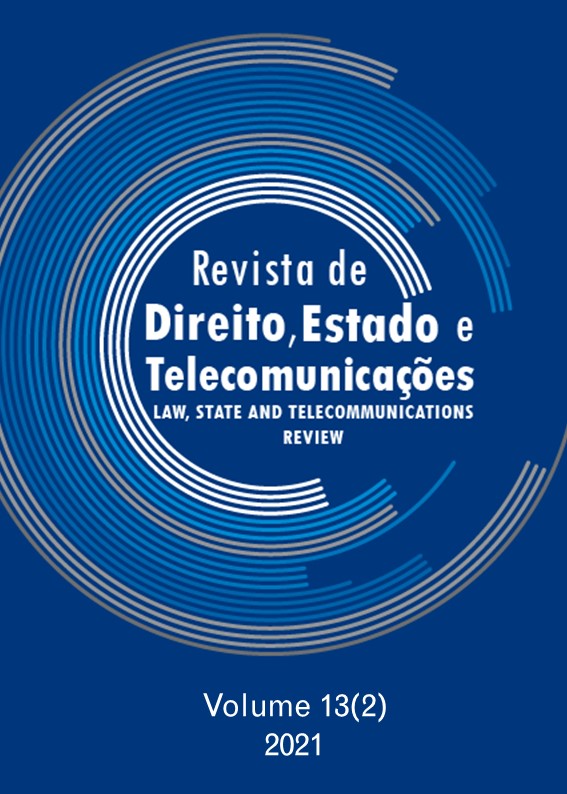Investigation and Seizure of Electronic Media in the Production of Investigative Actions
DOI:
https://doi.org/10.26512/lstr.v13i2.25920Keywords:
electronic media, investigator, defendant, seizure, inspection, search, seizure, criminal activity, electronic devices, court decision, appointment of expertise.Abstract
[Purpose] This article is devoted to the study of the problem of authorization of the removal of electronic media according to Russian Criminal Procedure Code.
[Methodology] The methodological basis of this study is a set of methods of scientific knowledge, among which the main place is taken by the methods of historicism, consistency, analysis and comparative law. The authors’ position is based on the legislation and opinions of the competent scientific environment on the need to use special knowledge in the investigation and seizure (copying) of electronic information relevant to the criminal case.
[Findings] Based on a legal analysis of the rules of criminal procedure authors argue the necessity to use specialists in the field of information and communication technologies in inspections, searches, and seizures. The systematization of rules-exceptions that must be observed by investigators during inspections, searches, and seizures is carried out. The questions of the evidentiary value of the results of electronic withdrawal are raised.
Downloads
References
THE CONSTITUTIONAL COURT OF THE RUSSIAN FEDERATION. On refusal to accept for consideration the complaint of the citizen Popov Anatoly Nikolaevich on violation of his constitutional rights articles 176 and 177 of the Criminal procedure code of the Russian Federation: definition of 28.02.2017 no. 338-O. Available at: http://www.consultant.ru/search/?q=egr+ha.
______. On refusal to accept for consideration the complaint of the citizen Prozorovsky Dmitry Alexandrovich on violation of his constitutional rights articles 176, 177 and 195 of the code of Criminal procedure of the Russian Federation: definition of the constitutional Court of the Russian Federation of 25.01.2018 no. 189-O. Available at: http://www.consultant.ru/search/?q=egr+ha.
THE PRIMORSKY REGIONAL COURT. Appeal decision in case no. 22-3453/2016. Available at: http://www.consultant.ru/search/?q=egr+ha.
THE SAMARA REGIONAL COURT. Appeal decision in case no. 22-7165/2018 of 10.12.2018. Available at: http://www.consultant.ru/search/?q=egr+ha.
THE RYAZAN REGIONAL COURT. Appeal decision in case no. 22-148/2018 of 03.04.2018. Available at: http://www.consultant.ru/search/?q=egr+ha.
THE YAROSLAVL REGIONAL COURT. Appeal decision in case no. 22-968/2017 of 11.07.2017. Available at: http://www.consultant.ru/search/?q=egr+ha.
THE SUPREME COURT OF REPUBLIC KHAKASSIA. Appeal decision in case no. 22-1516/2018 of 13.12.2018. Available at: http://www.consultant.ru/search/?q=egr+ha.
THE KAMCHATKA REGIONAL COURT. Appeal decision in case no. 22k-160/2018 of 13.03.2018. Available at: http://www.consultant.ru/search/?q=egr+ha.
INVESTIGATIVE COMMITTEE OF THE RUSSIAN FEDERATION. Extended operational meeting on the development of the Criminal center of the Russian IC on October 28, 2018. Available at: https://sledcom.ru/news/item/1266876.
KNYAZKOV, A. S. Complicity in the illegal sale of drugs and their analogues, committed through the use of electronic and information and telecommunication networks. Bulletin of Tomsk State University. Law, no. 30, p. 53-66, 2018. DOI: 10.17223/22253513/30/5
IVANOV, A. Situational aspects of the study of the identity of the suspect (accused) during the investigation with his participation. Bulletin of Tomsk State University. Law, no. 27, p. 30-37, 2018. DOI: 10.17223/22253513/27/3
VASYUKOV, V. F.; GAVRILOV, B. YA.; KUZNETSOV, A. A. Methods of obtaining evidence and information in connection with the detection (possibility of detection) of electronic media. Moscow: Prospect, 2017.
GAVRILIN, YU.V. Electronic media in criminal prosecution. Proceedings of the Academy of Management of the Ministry of Internal Affairs of Russia, v. 4, n. 44, p. 45-50, 2017.
GAVRILOV, B.YA. Obtaining evidence and information from electronic media: issues of legislative regulation and law enforcement. Criminal proceedings: problems of theory and practice. v. 3, no. 3, p. 32-36, 2018.
KOLYCHEVA, A.N. Fixation of evidentiary information stored on the resources of the Internet. Moscow, 2019.
U. S. SUPREME COURT. Riley V. California, 573 U. S. (2014) Available at: https://supreme.justia.com/cases/federal/us/573/13-132/.
CRIMINAL PROCEDURE CODE OF BELGIUM on 19 November 1808. Meeting of the legislation of Belgium. Belgium VRGCodex, 2017-2018.
THE COURT OF CASSATION OF BELGIUM. The Decision No. p. 14.1739.F/1 of 11.02.2015. Archive of the court of cassation of Belgium, Antwerpen.
MURATOVA, N.G.; SERGEEV, M.S. Legal regulation of the use of electronic information and electronic media in criminal proceeding: domestic and foreign experience. Moscow, Yurlitinform, 2019.
BULGAKOVA, E.; BULGAKOV, V.; TRUSHCHENKOV, I.; VASILIEV, D.; KRAVETS, E. Big data in the investigation and prevention of crimes. In The world of Big Data: problems of legislation and management technology. Research in systems, decision-making and management, v.181. Springer, Cham, p. 61-69, 2019. DOI: 10.1007/978.
Downloads
Published
How to Cite
Issue
Section
License
Copyright (c) 2021 Law, State and Telecommunications Review

This work is licensed under a Creative Commons Attribution 4.0 International License.
By submitting this paper to the Law, State and Telecommunications Review,
I hereby declare that I agree to the terms of the Creative Commons Attribution 4.0 International (CC BY 4.0).


